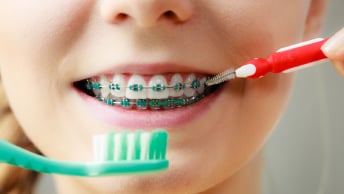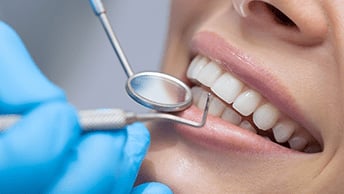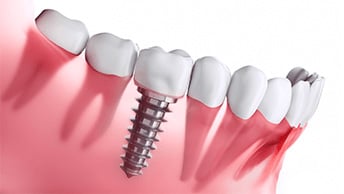6 Things You Should Know Before Getting Dental Implants
Nowadays, hundreds of millions of Americans are still suffering from tooth loss in spite of the improvements in dental care. No matter what reason is causing the problem, dental implants might be the best solution. To learn more about the implant, read the following facts about it.
1. What Are Dental Implants?
Dental Implants are artificial replacements for tooth roots. By providing a strong foundation, implants are used for fixed (permanent) or removable replacement teeth, which are made to match the natural ones.
2. Who Can Get Dental Implants?
In general, anyone who's healthy enough to go through a routine dental extraction or oral surgery could be considered for dental implants. Patients should meet the following requirements:
- · Having healthy gums and enough bone to hold the implant
- · Being committed to good oral hygiene and regular dental visits
Evaluation is required for those who are heavy smokers, suffering from uncontrolled chronic disorders (diabetes or heart diseases), or having had radiation therapy to the head/neck area. However, anyone who's considering getting implants should talk to the dentist for professional suggestions on an individual basis.
3. How Painful Are Dental Implants?
During the procedure, most people who have received dental implants consider there is only very little discomfort, which is less painful than a tooth extraction. Besides, patients may use local anesthesia during the process. Mild soreness may be expected after the dental implant, which could be treated with over-the-counter pain medications.
4. What Is The Success Rate Of Dental Implants?
Dental implants have a success rate of up to 98% in general, yet it will vary depending on where the implants are placed. If with proper care, implants could last a lifetime.
5. How To Care For Dental Implants?
Just like real teeth, dental implants need the same care, including brushing, flossing, rinsing with an antibacterial mouthwash as well as regular dental visits.
6. Could Insurance Cover The Cost Of Dental Implants?
Dental implants are not covered by dental insurance in general yet. However, it’s not impossible to receive free dental implants or at least cheap ones. You might want to check your medical plan since implants may be covered under it depending on the insurance plan and/or cause of tooth loss. More detailed questions should be discussed with the dentist and insurance provider on an individual basis.
Featured Posts
-
 Orthodontics
Orthodontics6 Must-Haves For Cleaning Teeth With Braces Or Aligners
If you are with any orthodontic appliance, it is essential to clean your teeth several times a day. There will be times that you're on the go and need to freshen up, and no worries if you get these things prepared. Here are 6 must-haves you'll need for cleaning your teeth on the go.
-
 Dental Implants
Dental ImplantsWhat Is The Cost Of Single Tooth & Full Mouth Dental Implants (USA)?
When it comes to dental services, one of the most frequently asked questions is how much dental implants would cost. There is no doubt that dental implants are an ideal option for people with missing teeth, but the high price usually would make people reconsider before making the decision. If you're one of those who are hesitating, check out the average cost of dental implants in the US that may help to make up your mind.
-
 Dental Implants
Dental ImplantsThe Average Prices For A Single Tooth & Full Mouth Implants
For those who suffer from bad teeth or tooth loss, dental implants might be the best solution. However, the price could be "intimidating" for many people. If you're seriously considering getting one, take a look at the average cost before making the further decision.
-
 Orthodontics
OrthodonticsPros And Cons Of Braces Vs. Clear Aligners
Which type of appliance to use to correct their orthodontic problem – braces or clear aligners? How do they decide? These would be the top questions specialists get from those who are considering orthodontic treatment. Here are some common treatment factors to consider for both braces and clear aligners. You should know before getting your orthodontic treatment.





